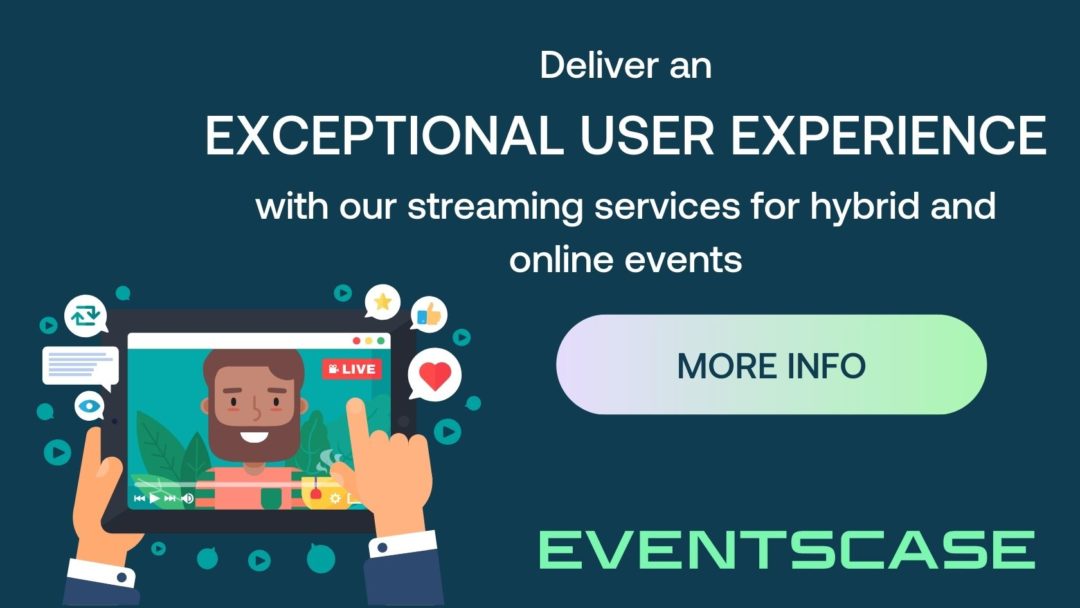Events represent a powerful strategy when it comes to achieving business objectives, building connections, and boosting brand awareness. Depending on your goals, audience, and resources, there are different types of events that you may choose: virtual, hybrid, or in-person. Each format offers its unique advantages and challenges, and selecting the right one results crucial. This blog explores the characteristics of each event type, helping you decide which strategy better fits your needs.
Defining the Objectives and the Role of Types of Events
The first step in planning any event is to clearly define the objectives you wish to achieve. Whether you’re aiming to enhance customer relationships or to showcase a new product, these goals will guide your choice of event format.
Once your objectives are set, the next step is selecting the most appropriate event format: virtual, hybrid, or in-person.
Choosing the right type of event is essential to maximising engagement and generating value. Each format comes with specific benefits, costs, and logistical considerations, making it important to align the event type with your strategy and audience.
Virtual Events: Accessibility and Flexibility
Key Benefits
Virtual events have surged in popularity in recent years, offering unmatched accessibility and cost-efficiency. Since there are no geographical limitations, you can expand your audience beyond local or regional boundaries. With the help of virtual event management software, organising your event becomes easier.

Characteristics
Global Reach
Virtual events can attract attendees from all over the world without the need for travel.
Cost-Efficient
Eliminating venue, catering, and travel expenses can significantly reduce costs of these types of events.
Engagement Tools
Platforms offer interactive features such as Q&A sessions, chat rooms, and polls that foster engagement.
Eco-Friendly
With no physical travel or material waste, virtual events are more sustainable than other types of events.
When to Choose Virtual Events
Virtual events are ideal if your main objectives are to provide widespread access to information, offer convenience, or cut down on expenses. These types of events are especially useful for webinars, virtual conferences, and workshops where education and information-sharing are key goals.
Hybrid Events: The Best of Both Worlds
Key Benefits
Hybrid events combine the advantages of both in-person and virtual formats, giving organisers the flexibility to cater to both local and global audiences. These types of events typically include an in-person component for those who can attend physically, while offering a virtual option for remote attendees through hybrid event management software.
Characteristics
Greater Audience Reach
Combining in-person and virtual participation allows you to engage both local attendees and those who cannot travel.
Flexibility
Attendees can choose how they wish to participate, increasing the likelihood of attendance.
Enhanced Interaction
You can integrate live Q&A, polls, and chat functions for both virtual and in-person attendees.
Cost Considerations
While offering both virtual and in-person components can be resource-intensive, hybrid events balance costs by limiting venue size while expanding reach online.
When to Choose Hybrid Events
Hybrid events are ideal if your objective is to maximise participation while offering the personal touch of face-to-face interactions. Consider this format for conferences, trade shows, and product launches where engaging both local and remote audiences is important.
In-Person Events: Deep Connections and Immersive Experiences
Key Benefits
In-person events remain the go-to choice for those looking to build deeper relationships and provide memorable experiences. While they require significant logistical planning and often involve higher costs, the personal interaction and tangible engagement opportunities they offer are irreplaceable.
Characteristics
Human Connection
Nothing can replace face-to-face interaction, which helps build stronger, more personal relationships.
Immersive Experience
From live demonstrations to networking opportunities, in-person events offer a more engaging and immersive environment.
Branding Opportunities
Physical events allow for greater creativity in branding through signage, decor, and event design.
Logistical Complexity
Venue selection, travel, catering, and health protocols are critical considerations.

When to Choose In-Person Events
If your objective is to strengthen relationships, provide hands-on experiences, or offer high-impact networking opportunities, an in-person event is the right choice. This format is particularly suited to trade fairs, product launches, and large conferences where personal engagement is key to success.
Budget and Financial Planning for Different Event Types
Once you’ve selected your event type, it’s time to dive into financial planning. Virtual events are typically more cost-effective as they eliminate expenses such as venue rental and catering. However, hybrid and in-person events require more financial resources due to logistics, technology, and accommodations.
Each event format requires diligent budget consideration to ensure you achieve your desired outcomes while staying within financial limits.

Conclusion: Choosing the Right Event Type
Selecting between different types of events (such as virtual, hybrid, or in-person formats) depends heavily on your event goals, audience, and resources. Virtual events offer accessibility and cost savings, hybrid events maximise reach and flexibility, and in-person events provide rich, engaging experiences. By aligning the event type with your strategic objectives, you can ensure your event not only meets but exceeds your expectations.
Organising events is about delivering value to your audience. Whether you choose to go fully virtual, hybrid, or in-person, careful planning and execution are key to making your event a success.
If you would like to subscribe to our newsletter to get live updates on everything related to our platform – news, blogs, events, announcements and much more, please, register here.






